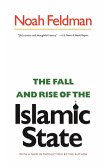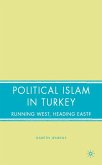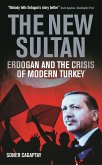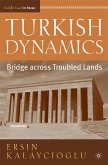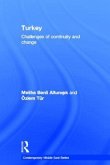This book contributes to the debate on the Islamization of Turkish politics by focusing on the Imam-Hatip schools, founded in 1924. Through textual analysis and interviews, it explores how Imam-Hatip education shapes students' politics and behaviour and examines the schools' role in Turkey's Islamization at both the high and grassroots levels of politics.
In recent years, the Islamization of Turkish politics and public life has been the subject of much debate in Turkey and the West. This book makes an important contribution to those debates by focusing on a group of religious schools, known as Imam-Hatip schools, founded a year after the Turkish Republic, in 1924. At the outset, the main purpose of Imam-Hatip schools was to train religious functionaries. However, in the ensuing years, the curriculum, function and social status of the schools have changed dramatically. Through ethnographic and textual analysis, the book explores how Imam-Hatip school education shapes the political socialization of the schools' students, those students' attitudes and behaviours and the political and civic activities of their graduates. By mapping the schools' connections to Islamist politicians and civic leaders, the book sheds light on the significant, yet often overlooked, role that the schools and their communities play in Turkey's Islamization at the high political and grassroots levels.
In recent years, the Islamization of Turkish politics and public life has been the subject of much debate in Turkey and the West. This book makes an important contribution to those debates by focusing on a group of religious schools, known as Imam-Hatip schools, founded a year after the Turkish Republic, in 1924. At the outset, the main purpose of Imam-Hatip schools was to train religious functionaries. However, in the ensuing years, the curriculum, function and social status of the schools have changed dramatically. Through ethnographic and textual analysis, the book explores how Imam-Hatip school education shapes the political socialization of the schools' students, those students' attitudes and behaviours and the political and civic activities of their graduates. By mapping the schools' connections to Islamist politicians and civic leaders, the book sheds light on the significant, yet often overlooked, role that the schools and their communities play in Turkey's Islamization at the high political and grassroots levels.
'Islamic Schools in Modern Turkey provides a rich ethnography on an institution that evidently plays a central role in shaping the Islamic movement in Turkey and provides an important venue for discussions over the movement's interaction with(in)the secular state. The author's very attempt to understand imam hatips produces an extensive scholarly contribution.' Turkish Review


